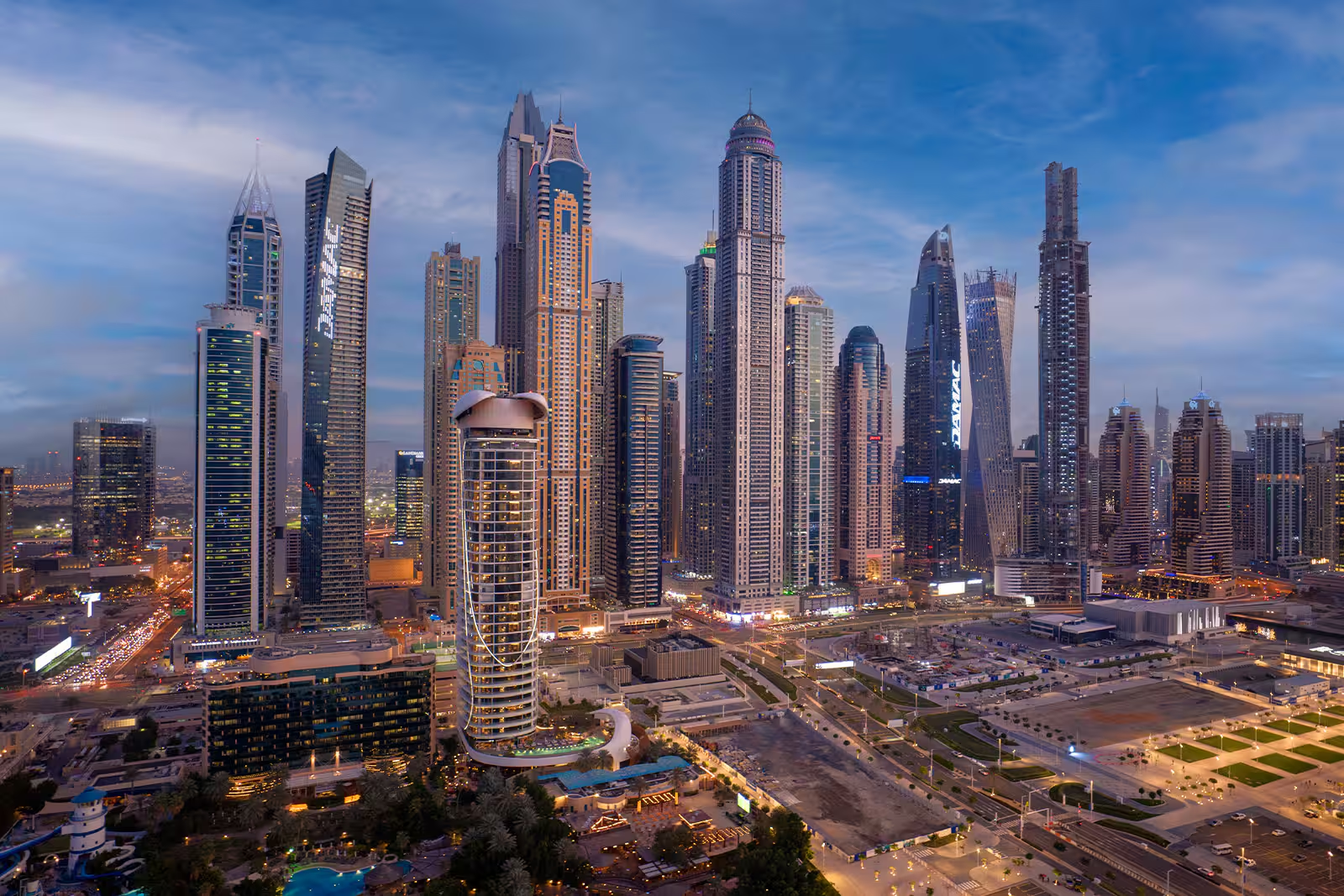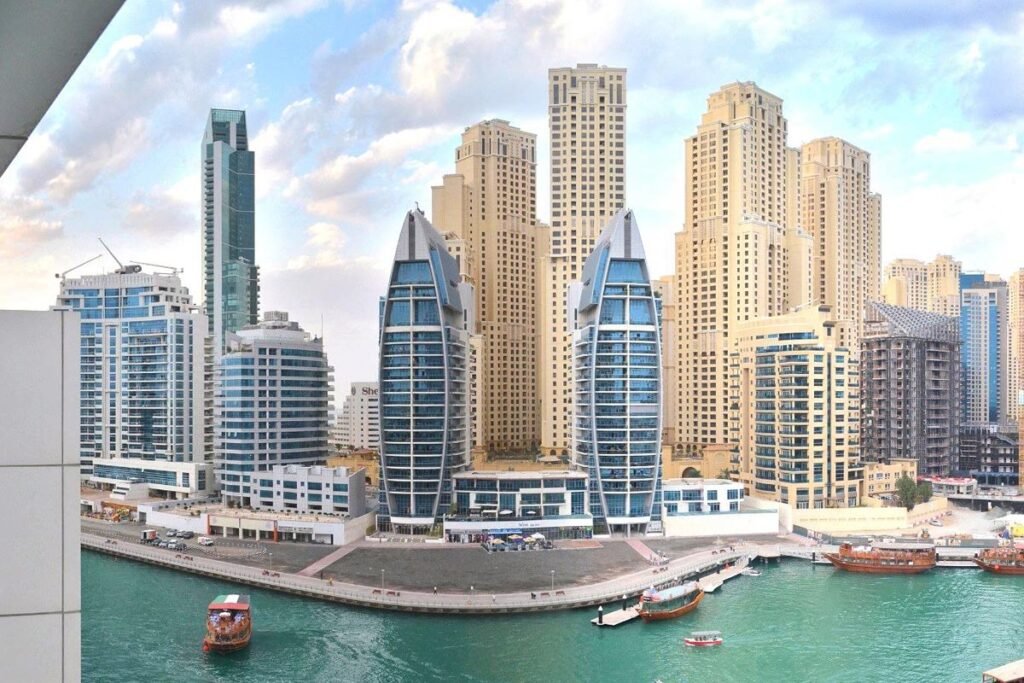
Dubai real estate shift from renting to buying is reshaping the city’s property market. Recent data shows that property transactions in Dubai soared to a staggering $11.55 billion in just one month, reflecting a growing trend of residents and investors moving away from long-term renting and embracing ownership. This transformation marks a key turning point for Dubai’s property landscape, highlighting rising buyer confidence, favorable government policies, and the city’s continued appeal as a global real estate hub.
Dubai’s real estate sector has always been dynamic, but the recent surge in property sales stands out even by the city’s high standards. In a single month, real estate transactions reached $11.55 billion, one of the highest figures in recent history.
This boom reflects more than just market momentum it showcases a structural change in demand. For years, renting has been the preferred option for many residents, particularly expatriates who make up the majority of Dubai’s population. But now, more individuals and families are choosing to buy homes, turning rental payments into investments in long-term property ownership.
Several factors are fueling the Dubai real estate shift from renting to buying. These include:
Rental prices in Dubai have climbed sharply in the last two years, particularly in popular residential neighborhoods. For many residents, renting is no longer seen as cost-effective, especially when mortgage payments for owned properties can be comparable or even lower than monthly rents.
Banks and lenders in Dubai are offering competitive mortgage rates and flexible repayment plans, making homeownership more accessible than ever. Many expatriates who once considered ownership out of reach now see it as a viable alternative to renting.
The UAE government has introduced several policies to attract long-term residents, such as the 10-year Golden Visa and reforms in property ownership laws. These initiatives have given expatriates greater confidence to invest in Dubai’s property market.
For buyers, property ownership provides a sense of stability and long-term value. Rather than seeing monthly rental payments vanish, homeowners build equity and secure an asset that can appreciate in value over time.
Dubai’s luxury real estate market continues to attract buyers seeking a lifestyle upgrade. Villas, waterfront homes, and branded residences are increasingly popular, as families and high-net-worth individuals prioritize space, amenities, and exclusivity.
The Dubai real estate shift from renting to buying is not uniform across all property types. Some market segments are seeing more activity than others:
Demand for villas and townhouses has surged, as families seek larger living spaces and private amenities. Properties in areas such as Palm Jumeirah, Dubai Hills Estate, and Mohammed Bin Rashid City are especially popular.
Apartments in central areas like Downtown Dubai, Dubai Marina, and Business Bay continue to attract buyers who value convenience and proximity to business hubs. Many are upgrading from rented apartments to owned ones in the same neighborhoods.
Off-plan developments are experiencing strong demand, particularly among investors. These projects allow buyers to enter the market at competitive prices while benefiting from flexible payment plans and potential appreciation once construction is complete.
Certain districts are leading the trend as the top beneficiaries of the Dubai real estate shift from renting to buying:

Developers are responding to this shift by launching more projects that cater to end-users rather than just investors. For years, Dubai’s market was often seen as speculative, dominated by investors seeking quick returns. Today, there is greater demand for practical, livable properties tailored to families and long-term residents.
This trend is leading to:
While end-users are increasingly buying homes, investors continue to see Dubai as a highly attractive market. The emirate’s real estate sector offers:
This dual demand—from both residents and investors—creates a healthy balance, ensuring long-term sustainability for the market.
Despite the positive momentum, the Dubai real estate shift from renting to buying is not without challenges.
The shift from renting to buying suggests that Dubai’s real estate market is maturing. Instead of being dominated by speculative investors, the market is now shaped more by end-user demand. This transition reflects a healthier, more sustainable environment, where properties are valued for their long-term livability and not just short-term gains.
Experts predict that the momentum will continue throughout 2025 and beyond. Dubai’s population is expected to grow significantly, driven by its appeal as a global hub for business, tourism, and lifestyle. As more residents put down roots and choose ownership, the city’s property market will become even more stable and diversified.
The Dubai real estate shift from renting to buying marks a major transformation in the emirate’s property market. With transactions hitting $11.55 billion in just one month, the trend highlights growing confidence among both residents and investors.
Rising rental costs, attractive mortgage options, and government reforms are encouraging more people to become homeowners. Developers are adapting to the demand for practical, community-oriented housing, while investors continue to see strong returns in Dubai’s thriving market.
As this shift gains pace, Dubai’s real estate sector is entering a new era one defined not just by iconic skyscrapers and luxury villas, but by a growing base of long-term homeowners who see the city as more than a place to live, but a place to belong.
Follow us on: Instagram
Read More :Dubai Luxury Villas with Private Pools Outperform Apartments in 2025
